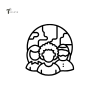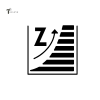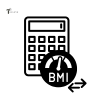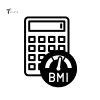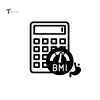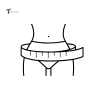Blood Type Calculator
Predict possible blood types with Rh factor probabilities
How Blood Type Inheritance Works
Blood types are determined by combinations of ABO alleles (A, B, O) and Rh factor (positive/negative) inherited from both parents. The A and B alleles are co-dominant, while O is recessive. Rh+ is dominant over Rh-.
RELATED TOOLS Blood Type Calculator
A blood type calculator is a scientific tool designed for calculating blood type probabilities for offspring based on parental blood types. Using Mendelian genetics, this blood calculator type helps predict possible ABO blood groups and Rh factors.
What is a Blood Type Calculator?
A blood type calculator allows users to enter the blood types and Rh factors of both parents. It then calculates the likelihood of all possible blood types for their children. This tool simplifies complex genetic principles into easy-to-understand probabilities, making calculating blood type straightforward for educational and family planning purposes.
How the Blood Type Calculator Works
- ABO Blood Group System: Codominance of A and B alleles; O is recessive.
- Rh Factor System: Rh+ is dominant; Rh- is recessive.
- Each parent contributes one allele for ABO and one for Rh factor.
- Combinations generate probabilities for 16 possible outcomes.
Using the Calculator
- Select the blood type and Rh factor for Parent 1.
- Select the blood type and Rh factor for Parent 2.
- Click the “Calculate Blood Type Probabilities” button to see results.
- Review probability percentages and visual probability bars.
Common Blood Type Probabilities
Here is a quick reference table for common parental blood type combinations:
| Parent 1 | Parent 2 | Possible Child Blood Types | Probability Example |
|---|---|---|---|
| A+ | A+ | A+, O+ | A+ (75%), O+ (25%) |
| AB+ | O- | A+, A-, B+, B- | Each 25% |
| B- | O- | B-, O- | B- (50%), O- (50%) |
| A+ | B+ | A+, B+, AB+, O+ | Each 25% |
Understanding Blood Type Results
Medical and Educational Benefits
- Predict potential Rh incompatibility during pregnancy
- Plan family blood donation compatibility
- Understand genetic inheritance patterns for education
- Visualize probability concepts in an easy-to-understand format
Limitations
While this blood calculator type provides accurate probability estimates based on genetics, real-world variations such as rare alleles, mixed heritage, or medical factors can affect outcomes. The tool is intended for educational purposes and should not replace professional medical advice.
Why Use a Blood Type Calculator?
A blood type calculator makes calculating blood type simple, visual, and educational. It is ideal for family planning, classroom learning, and anyone curious about genetic inheritance patterns. With color-coded probabilities and easy-to-read results, this tool transforms complex genetics into actionable insights.
Key Takeaways
- ABO and Rh factors determine blood type inheritance.
- High, medium, and low probability outcomes help interpret results.
- The tool educates users without requiring medical expertise.
- Perfect for educational use, pregnancy planning, and family awareness.
Discover all possible outcomes and better understand genetic inheritance using this interactive blood type calculator. Start calculating blood type probabilities today to explore how parental genetics influence offspring blood types.
ALSO CHECK 

